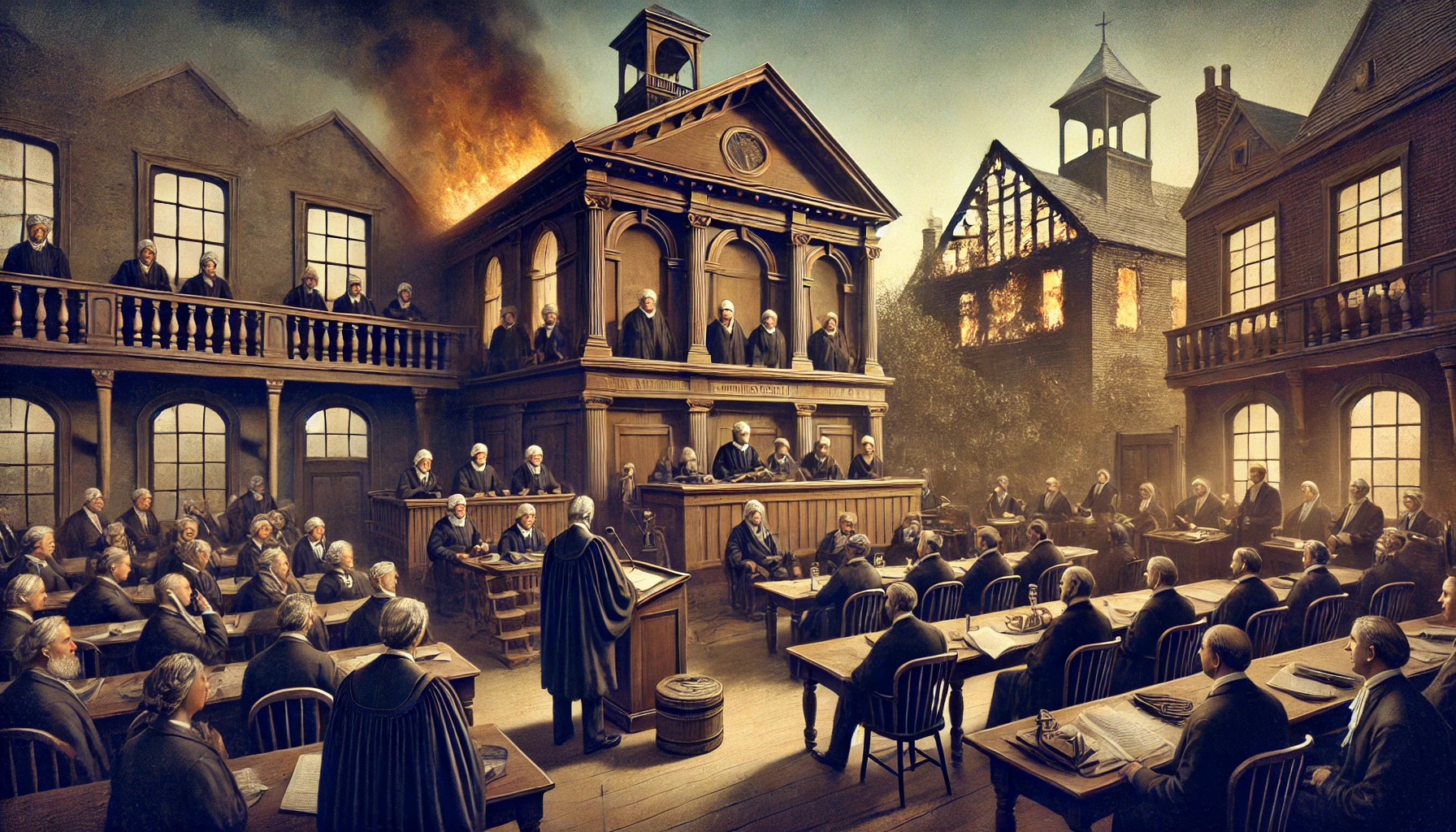Citation
(1863) 3 B & S 826
Court
Court of Queen’s Bench, England
Date of Judgment
6 May 1863
Bench
Hon’ble Justice Blackburn, Hon’ble Justice Mellor
Facts of the Case
Taylor, the plaintiff, entered into a contract with Caldwell, the defendant, to use Caldwell’s music hall for a series of concerts. Before the first event could take place, the music hall was destroyed by fire, rendering it impossible to fulfill the contract.
Taylor sued Caldwell for damages, claiming breach of contract. The core issue was whether Caldwell was liable for non-performance when the subject matter of the contract was destroyed through no fault of either party.
Legal Issues
- Whether the destruction of the subject matter of the contract excuses performance under the doctrine of frustration.
- Whether Caldwell could be held liable for breach of contract despite the impossibility of performance.
Reasoning of the Court
- Doctrine of Frustration
- The court held that when the performance of a contract becomes impossible due to unforeseen events and neither party is at fault, the contract is discharged.
- Implied Condition
- Justice Blackburn reasoned that the contract was based on the continued existence of the music hall. Its destruction frustrated the very purpose of the agreement, making performance impossible.
- No Fault Principle
- The court emphasized that Caldwell could not be held liable because the fire was an unforeseen event beyond his control.
Judgment
The Court of Queen’s Bench ruled in favor of Caldwell, holding that the contract was frustrated and neither party could claim damages.
Significance of the Case
- Establishment of the Doctrine of Frustration
- This case introduced the doctrine of frustration into English contract law, excusing parties from performance when unforeseen events render the contract impossible.
- Implied Terms and Intent
- It highlighted the importance of implied terms in contracts, ensuring fairness when events beyond the parties’ control occur.
- Global Influence
- The principles established in this case have influenced contract law in jurisdictions worldwide, including India, under Section 56 of the Indian Contract Act, 1872.
Conclusion
The case of Taylor v. Caldwell is a foundational decision in contract law, establishing the doctrine of frustration. It provides a legal framework for addressing situations where unforeseen events render performance impossible, ensuring fairness for both parties.

